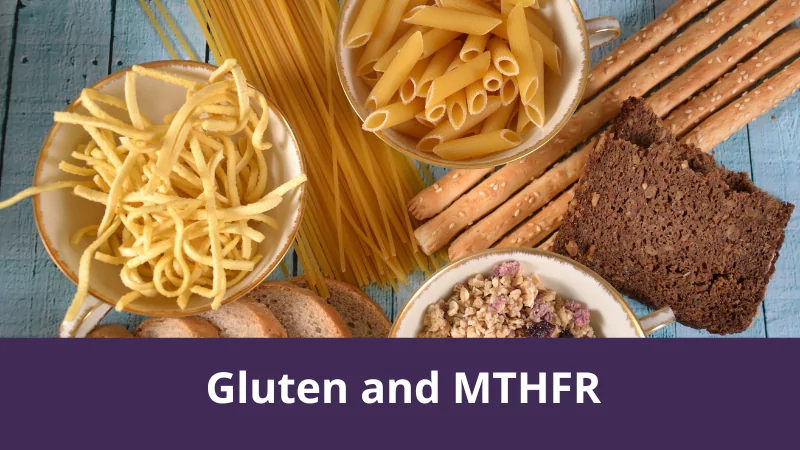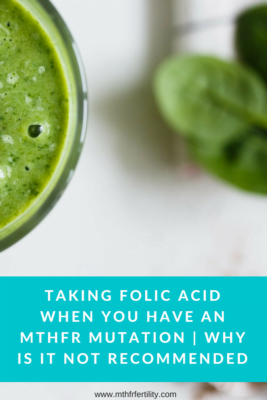What are oxalates?
Oxalates aren’t exactly well known compounds, but they can affect our health if our body doesn’t process it optimally. Oxalates are found in a wide variety of foods and play an important role in the metabolism of various plants, animals, and of course our own human metabolism.
Humans can’t digest oxalates and they normally stay in the gastrointestinal tract until it passes through unabsorbed. A normal functioning gut will resist absorption due to a well functioning DAO enzyme and certain bacteria capable of breaking down oxalates to make sure the body is protected from them building up.
Oxalates can disrupt our body’s every day functioning on a cellular level if they are not properly processed. Once absorbed, our body needs to protect itself from them and it does so by either storing them somewhere or excreting them. If your detoxification systems, especially your liver and kidneys, aren’t working well, you might not excrete sufficient amounts.
Oxalates in our food
Oxalates are found in many common foods such as caffeine in coffee and tea, chocolate, nuts and seeds, spinach and many varieties of fruits and vegetables.
Think about it for a moment. Having the healthiest type of lifestyle might actually lead to oxalate overdose. The people who are most prone to oxalate overdose are the same ones who like the idea of juicing or blending vegetable smoothies as part of their diet. Its something I see in clinic all the time. People think they are doing the right thing but juicing 2 litres of spinach, beetroot, celery and carrot is overloading our capacity to get rid of oxalates.
Some foods with high oxalate content fall under the category of superfoods so that doesn’t necessarily make those foods bad. Consuming these foods won’t be a problem or cause oxalate overdose so long as our digestive processes are functioning properly. Another important factor is B6. We need to have good levels of B6 to help us break oxalates down.
Issues with too much oxalate
Kidney Stones
Studies suggest some individuals are “hyperabsorbers” of oxalate from the intestinal tract (1,2,3). In other words, their bodies uptake more oxalate than most. In principle, the higher the oxalate absorbed, the higher the amount that will reach the kidneys and increase the level of urinary oxalates. When combined with elevated amounts of urinary calcium, there is an increased risk of what we call calcium oxalate kidney stone formation.
Oxalate uptake
- Oxalates only gets absorbed from our digestive tract when it is in soluble form. Sodium oxalate and potassium oxalate are the predominant soluble forms. By contrast, calcium oxalate is insoluble, and magnesium oxalate is poorly soluble. So the form of the oxalate is important in the absorption process.
- Our gut microbes turn out to play a critical role in the amount of oxalate available for absorption since multiple species of gut microbes are able to break down oxalate. These species include Oxalobacter formigenes (known to reduce calcium oxalate kidney stones), numerous species of Lactobacillus, and several species of Bifidobacteria.
- Studies show the overall combination of foods that we eat during a meal (including both oxalate-containing and non-oxalate-containing foods) can significantly impact the amount of soluble oxalates available for absorption from our digestive tract.
In general, since only up to 40% of blood oxalates originate from food, and since 85-95% of individuals have no issues with calcium oxalate kidney stones, we don’t expect most people to have kidney stone-related problems from routine enjoyment of the foods containing high amounts of oxalate. If you’re gut and gallbladder is healthy you shouldn’t be worried about your oxalate levels.
Calcium Metabolism
Calcium is one of the most difficult minerals to absorb from food. Even at low levels of dietary intake, your body only really absorbs calcium at a rate of about 35% while the rest is excreted. This generalized rate of absorption can vary significantly from food to food, however, and the presence of oxalates in our diet is definitely a factor that lowers calcium absorption (through the formation of insoluble calcium oxalate salts).
- Studies show those who largely live on plant-based diets do not have greater calcium deficiency or increased risk of osteoporosis, which you might predict if substances like oxalates were impairing calcium absorption in a way that would create a health risk. This is thought to be due to their low-acid diet.
[thrive_text_block color=”light” headline=””]
Do you understand how Oxalates impact your patients’ health?
Do you have patients with hormone, joint and ligament issues?
This webinar gives you the knowledge to understand the causes, issues, and management of Oxalates.
[maxbutton id=”12″ url=”https://www.mthfrsupport.info/oxalateswebinar” text=”Purchase Your On-Demand Webinar ” window=”new” ]
[/thrive_text_block]
Oxalates and MTHFR
Aside from the problems with our kidneys and bones, did you know oxalates create biochemical problems that make methylation issues worse? Before we get to that, let’s first discuss how oxalates and the liver relate to each other.
Oxalates and the liver
Your liver makes use of two pathways in order to carry out its detoxification work – phase I and phase II pathways. You can think of phase I as being responsible for breaking things down and then sending the raw materials to phase II, which builds new substances from the raw material by adding molecules to them (this is called conjugation). You need to supply the ‘special conjugation substances’ via your diet or the production lines come to a halt.
Oxalate problems can negatively affect what we call the Sulfotransferase (SULT) and other phase II related pathways. The phase II pathways are collectively known as the conjugation pathway. This involves converting the fat-soluble toxic chemical and transforming the toxins into water-soluble chemicals. Then they are passed out through body fluids as such as the bile or urine.
SULT enzymes catalyzes sulfate conjugation and sulfate is necessary for the liver to perform the daily task of detoxification. Naturally, if sulfate levels are down, the liver won’t be able to function normally and detoxify.
If the liver is unable to use the SULT pathway, it will be have to make do with Phase II pathways. This isn’t a healthy substitute, though, as this alternative can increase the amount of stress on the other pathways because those were meant to be used for another function.
What can the SULT SNP do to us?
Okay, let’s say you don’t have oxalate problems, can people with SULT SNPs still have health problems? Yes, they very much do.
- People with SULT SNPs have malfunctioning detoxification processes and are more likely to be sensitive to external substances such as toxins and heavy metals.
- Let’s not forget how people with SULT SNP are also more likely to be hypersensitive towards poor sulfate levels in the body since this sulfate inadequacy worsens an already burdened pathway.
- Those with SULT gene polymorphisms will also need to take extra care in consuming processed food since these foods contain chemicals and colorants capable of slowing down the SULT pathways even more.
Low Sulfate and MTHFR
The MTHFR and methylation pathways are involved in the body’s detox processes. As a quick review, methylation is a fundamental chemical exchange that happens in the body. You see it everywhere—in every cell, in every organ, and in every tissue. While we all methylate, not everyone methylates at the same pace.
The gene that heavily influences methylation is the MTHFR gene. Variations in this gene affect how much or how little we methylate. Because of this, those with variations in the MTHFR gene are often poor detoxifiers.
With that in mind, if hyperoxaluria creates a low-sulfate problem that leads to slower detoxification, we can say those with MTHFR gene SNPs will not only suffer but may also be much more affected than ordinary people.
When the body struggles with an inadequate supply of sulfate, it burdens our methylation cycle to pump out more sulfate molecules. This might lead to the methylation cycle being impaired and as we’ve discussed before, an impaired methylation cycle can lead to a whole roster of problems such elevated levels of homocysteine, hormonal imbalance, and developmental disorders just to name a few.
References:
- Farzaneh sheikh ahmad E, Farzaneh E, Zavvareh HT, Gharadaghi J, Sheikhvatan M. Prevalence and characteristics of gallstone disease in an Iranian population: a study on cadavers. HBPD INT. 2007;6(5):509-12.
- Kumar R, Lieske JC, Collazo-clavell ML, et al. Fat malabsorption and increased intestinal oxalate absorption are common after Roux-en-Y gastric
- bypass surgery. Surgery. 2011;149(5):654-61.
- Low Oxalate Diet May Help Prevent Kidney Stones. University of Pittsburg Medical Center Web Site. . Accessed on10/17/2015.
- Nguyen QV, Kälin A, Drouve U, Casez JP, Jaeger P. Sensitivity to meat protein intake and hyperoxaluria in idiopathic calcium stone formers. Kidney
- Int. 2001;59(6):2273-81.
- Marangella M, Fruttero B, Bruno M, Linari F. Hyperoxaluria in idiopathic calcium stone disease: further evidence of intestinal hyperabsorption of oxalate. Clin Sci. 1982;63(4):381-5.
- Hesse A, Schneeberger W, Engfeld S, Von unruh GE, Sauerbruch T. Intestinal hyperabsorption of oxalate in calcium oxalate stone formers: application of a new test with [13C2]oxalate. J Am Soc Nephrol. 1999;10 Suppl 14:S329-33.
- Berg W, Haerting R, Bothor C, Meinig S, Eschholz A, Schulze HP. [Diagnosis of intestinal oxalate hyperabsorption in patients with idiopathic recurrent calcium oxalate urinary calculi]. Urologe A. 1990;29(3):148-51. Liebman M, Al-wahsh IA. Probiotics and other key determinants of dietary oxalate absorption. Adv Nutr. 2011;2(3):254-60.
- Kaufman DW, Kelly JP, Curhan GC, et al. Oxalobacter formigenes may reduce the risk of calcium oxalate kidney stones. J Am Soc Nephrol. 2008;19 (6):1197-203.
- Jaeger P, Robertson WG. Role of dietary intake and intestinal absorption of oxalate in calcium stone formation. Nephron Physiol. 2004;98(2):p64-71. Trinchieri A. Diet and renal stone formation. Minerva Med. 2013;104(1):41- 54.
- Coe FL, Evan A, Worcester E. Kidney stone disease. J Clin Invest. 2005;115 (10):2598-608.
- Wolf RL, Cauley JA, Baker CE, et al. Factors associated with calcium absorption efficiency in pre- and perimenopausal women. Am J Clin Nutr. 2000;72(2):466-71.
- Burckhardt P. The role of low acid load in vegetarian diet on bone health: a narrative review. Swiss Med Wkly. 2016;146:w14277.
- Gamage N, Barnett A, Hempel N, et al. Human sulfotransferases and their role in chemical metabolism. Toxicol Sci. 2006;90(1):5-22.
- Lee S, Dawson PA, Hewavitharana AK, Shaw PN, Markovich D. Disruption of NaS1 sulfate transport function in mice leads to enhanced acetaminophen-induced hepatotoxicity. Hepatology. 2006;43(6):1241-7.
[thrive_text_block color=”light” headline=””]
Do you understand how Oxalates impact your patients’ health?
Do you have patients with hormone, joint and ligament issues?
This webinar gives you the knowledge to understand the causes, issues, and management of Oxalates.
[maxbutton id=”12″ url=”https://www.mthfrsupport.info/oxalateswebinar” text=”Purchase Your On-Demand Webinar ” window=”new” ]
[/thrive_text_block]








